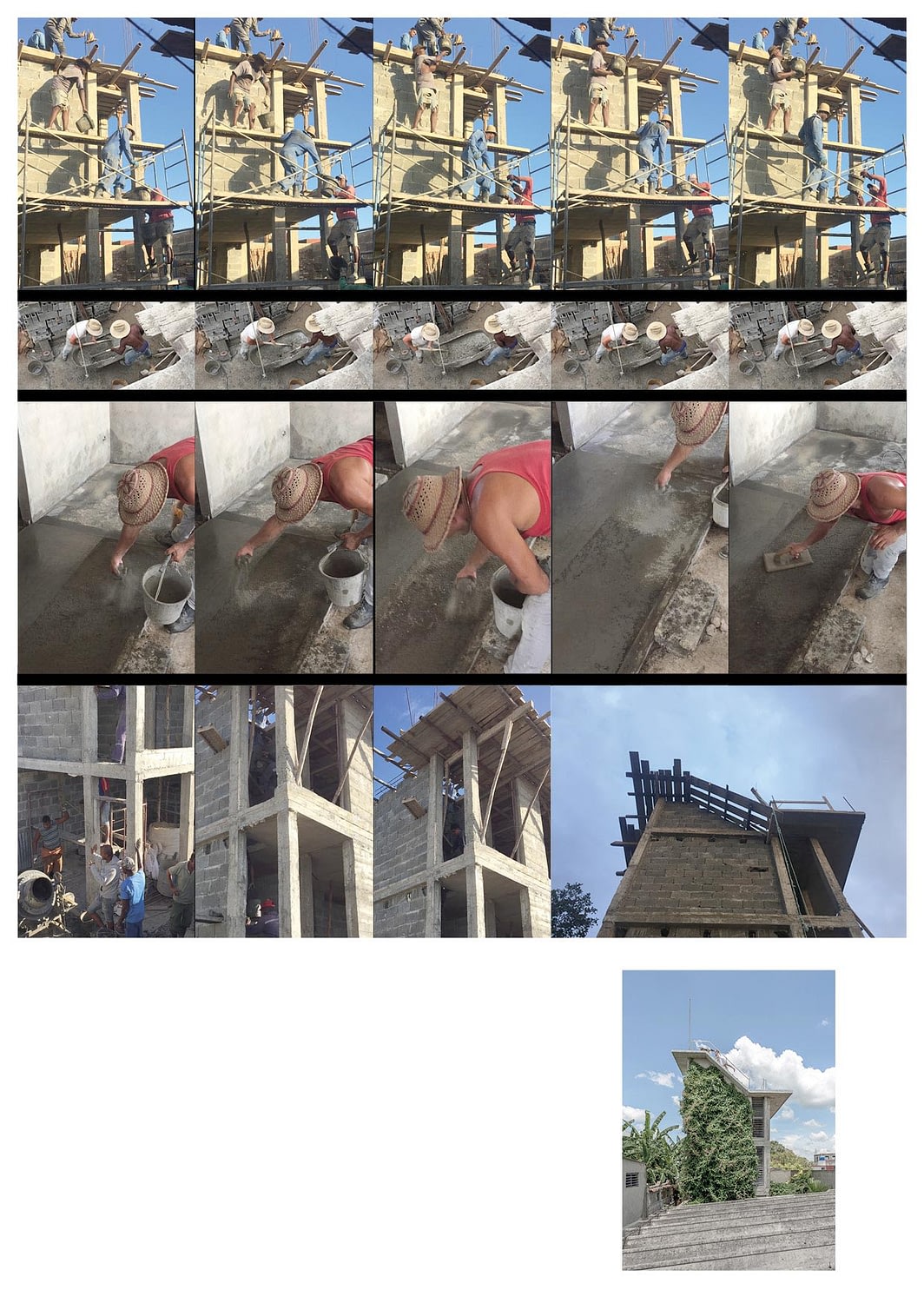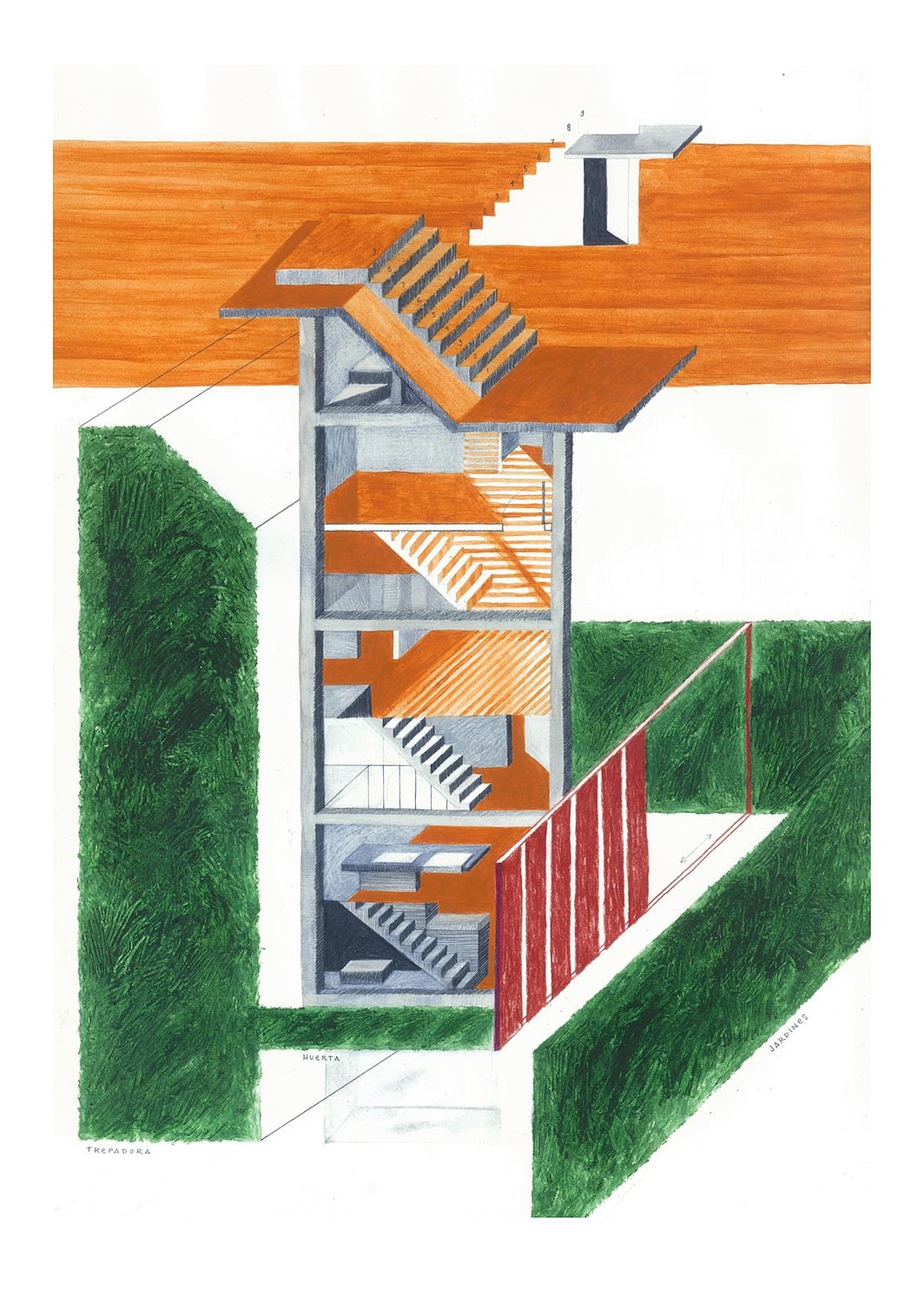Thu 15 Sep
16:10
Albor Arquitectos, Havanna
A certain primal dignity: On the work of the independent practice Albor arquitectos in Cuba nowadays
A socioeconomic reality, marked by the profound scarcity of means and resources, is at the base of the Casa Torre project. The prospect of an uncertain future shaped the program of a flexible and progressive single-family home, to which the aim is to respond by erecting a watchtower, a constructive nucleus from which to overcome the challenges to come.
The condition of uncertainty propitiated by this framework of scarcity connects the programmatic and the constructive. In addition, what makes this context unique is the union between the professional issue and the popular due to the absence of a legitimizing framework for the independent practice of architecture, which is then understood as experimental, not certified. In the absence of clear construction regulations and a hierarchy of competencies, typically regulated relationships are managed at the level of words and practical actions. Almost all the implicit professional hierarchies between the architect and the builder are diluted, and the usual sequences of the architectural project – linear structure of conception - technical plans - construction – are transformed into a system of directional multiplicity.
This context is also determined by the loss of construction tradition and technical knowledge that, together with the profound instability of the material market, make technical forecasting of solutions impossible and determine that the presence of the architect in the work, as well as the close relationship with the builder – on the verge of becoming the latter – is indispensable for the achievement of the work of architecture.
Casa Torre catalyzes the process of optimization and constructive adaptation of reality that Albor has developed in recent years. As expected, the multidimensionality of this process includes material and social connotations: For example, the builder and his family lived during the work in the existing house in the front part of the lot. The builder who came from a rural area reached this agreement for the benefit of his family and his own work; At the same time, his wife and daughter had access to primary services, the worker could have custody of the materials that were carried and control of the execution.
This kind of experience on the site, this care, allowed that in this context of material precariousness, technical adaptations were carried out in a consensual way throughout the work: disparate material supplies, cements of dissimilar origins, non-certified aggregates and the absence of lime. and additives required the experimental redosing of the mixtures for the reinterpretation of traditional techniques such as the plastering of floors and walls. The process of material reformulation of the idea traced from the project, which in our case is handled as a paradigm, adds interest to the dialectical reformulation component of the idea or concept. The project remains alive once the conception stage has been overcome: the projection perpetuated throughout the construction, the conceptualization linked to the material and the execution articulated through this dedication.
It is this working condition, the craftsmanship-professionalism relationship, the construction from the site on a day-to-day basis, the spatial adjustment, the understanding of the place beyond the initial project, what we understand as beauty through craftsmanship, through originality. We have to say that it is a diffuse beauty, a beauty of the self-generated, of a widely meditated site, of a craft of effort, a recurrent idea –perhaps naive– that explores a central root of architecture.

© Albor Arquitectos

© Albor Arquitectos
Albor Arquitectos
Founded in 2010 in the city of Cienfuegos, Cuba, Albor Arquitectos is the result of the association of a group of young architects who share interests in architecture and creative activity, assuming it with special attention to the procedural and the investigative. To date, his work includes projects of various scales ranging from urban design and planning to the construction of small architectural works and furniture design.
Albor has recently participated in the 2019 Havana Biennial and has been selected by Archdaily among the “Best New Practices of 2021”. Some of his works, such as Casa Torre, Casa Soporte and El Apartamento have been awarded in national architecture salons.
Carlos Manuel González Baute (Cienfuegos, 1983)
Architect from the Central University of Marta Abreu de Las Villas, Santa Clara, Cuba, 2007; Co-founder of Albor Arquitectos in 2010
Alain Rodríguez Sosa (Cienfuegos, 1983)
Architect from the Central University of Marta Abreu de Las Villas, Santa Clara, Cuba, 2007; Co-founder of Albor Arquitectos in 2010
Merlyn González García (Villa Clara, 1994)
Architect from the Central University of Marta Abreu de Las Villas, Santa Clara, Cuba, 2017; Partner of Albor Arquitectos since 2017
Camilo José Cabrera Pérez (Villa Clara, 1991)
Architect from the Central University of Marta Abreu de Las Villas, Santa Clara, Cuba, 2016; Partner of Albor Arquitectos since 2016